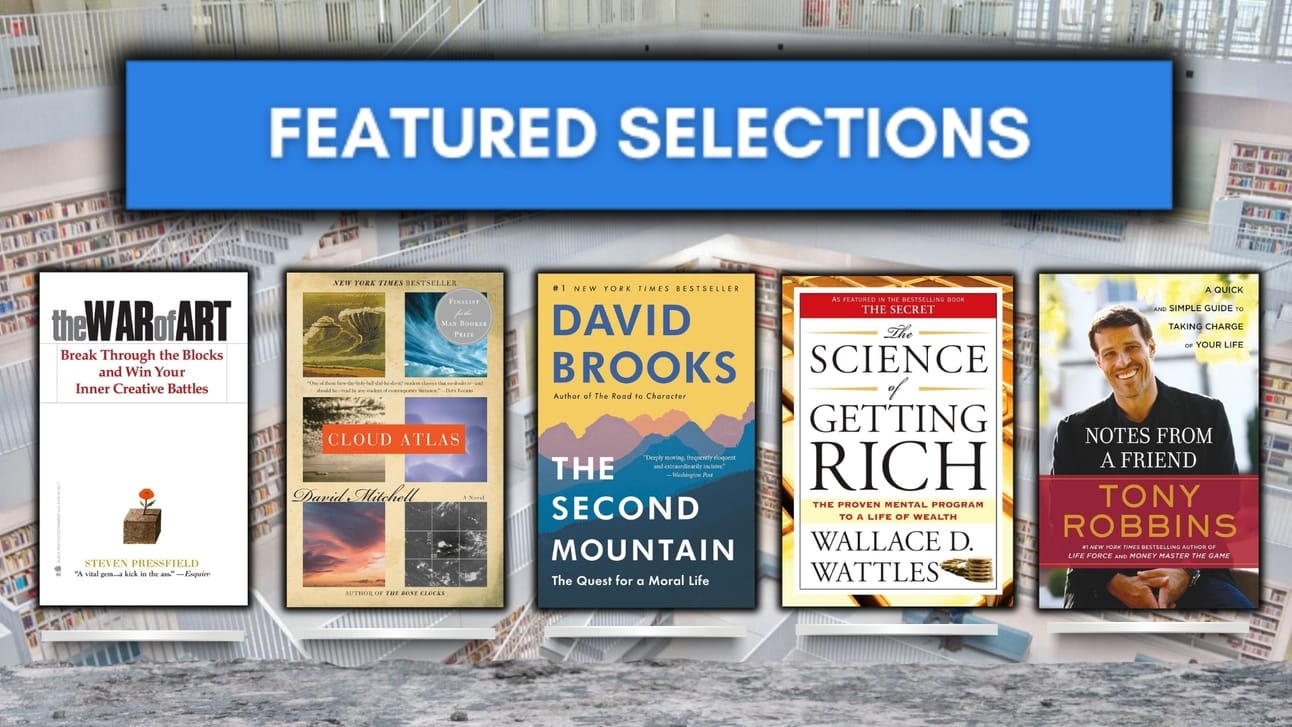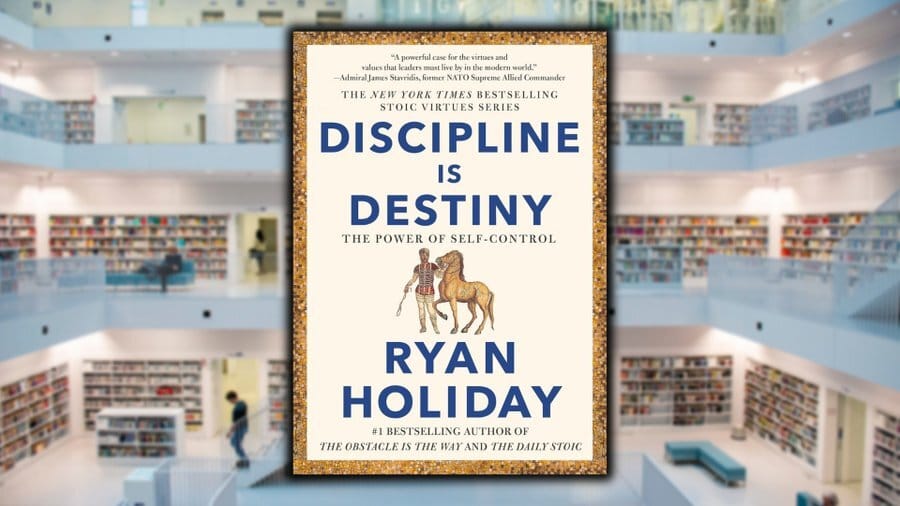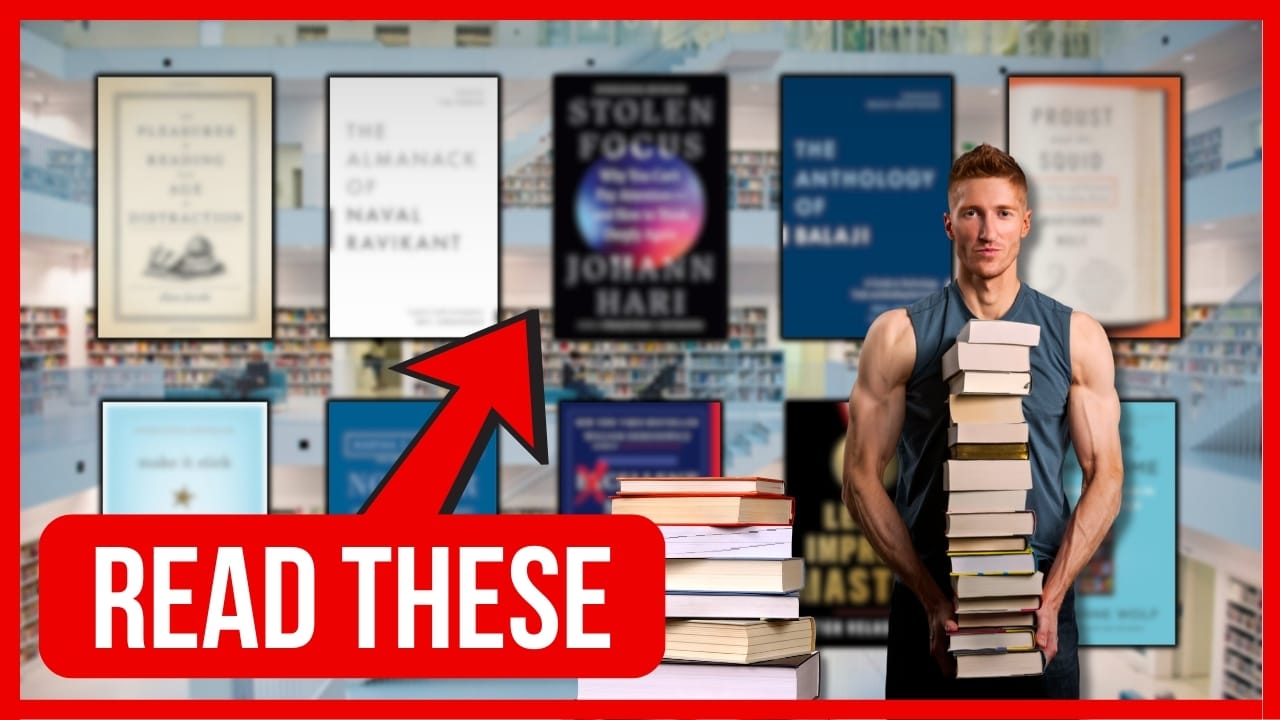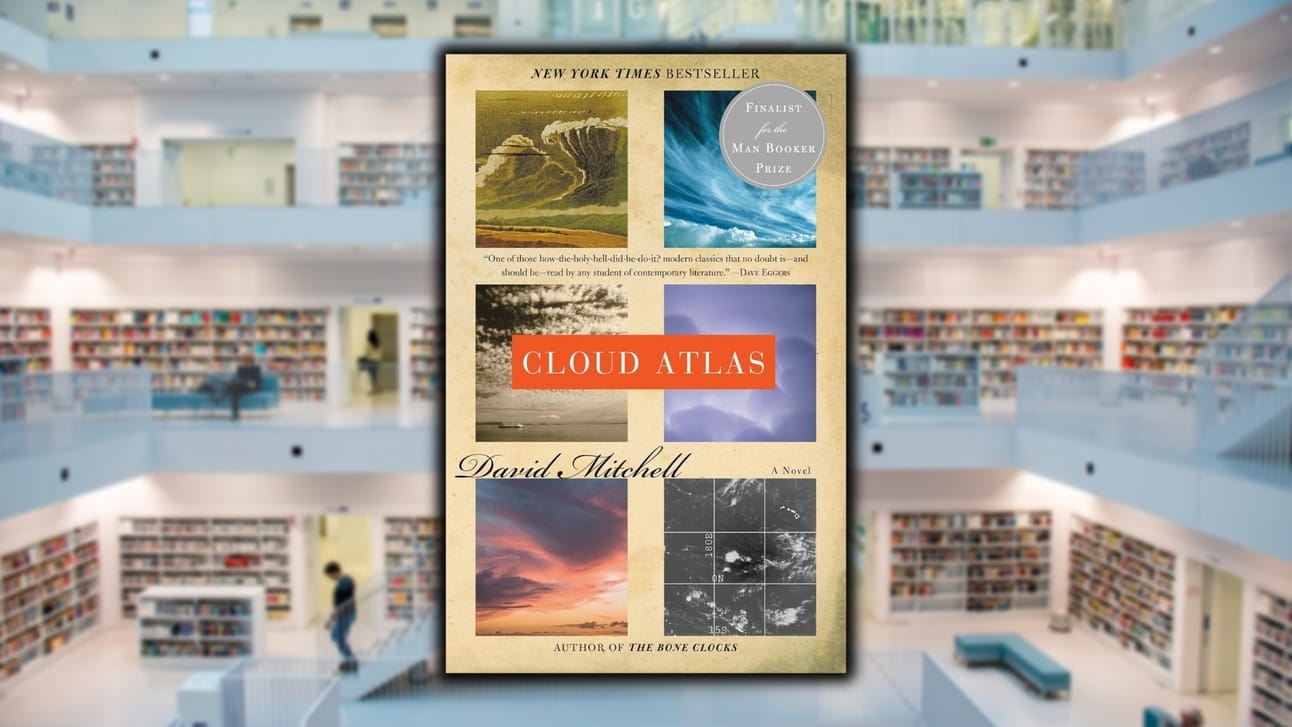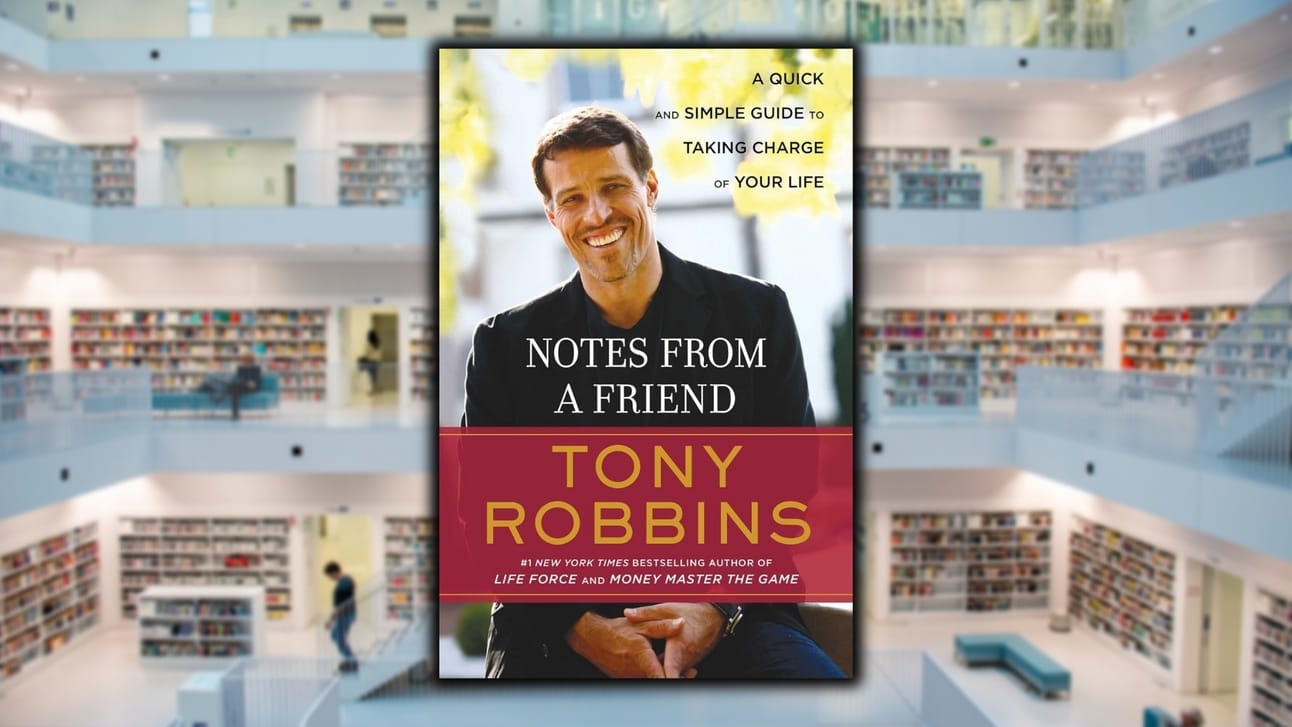Sorry to do this to you, but I have even more books to crowd your TBR today. I can only hope you’ll forgive me after they become your favorite books too.
I’m talking specifically about two of my favorites from today’s Five Books: Cloud Atlas, by David Mitchell, and The War of Art, by Steven Pressfield, both of which are below, with all my notes and a summary of each.
But I also wanted to pass along two more recent releases (and one that’s coming out in a few days), all of which have been dutifully added to my own TBR:
No, I won’t ever get to the bottom of my Reading List (and neither will you), but then again, what would be so great about that?! We wouldn’t have any great books to look forward to! We’d have already read everything, and that sounds kinda boring to me.
Luckily for both of us, “Reading Books” is an infinite game that we get to keep playing for the rest of our lives!
With that said, below are my complete notes and summaries from the following books…
And in my latest YouTube video I recommend 10 fascinating books that will increase your intelligence. I’m also working on a monster video: 100 Wildly Popular Self-Help Books - Summarized in 1 Sentence Each.
That’ll take me 15+ hours to edit (at least) but I’ll let you know when it’s done! But…
In This Issue of The Reading Life, We’ve Got:
📖 What I’m Currently Reading
📕 Books I’ve Finished This Month
📜 The Book Quote of the Day
🎥 10 Fascinating Books That Will Increase Your Intelligence
✍ My Latest Medium Articles
✅ New Book Releases Coming Soon
📚 Tonight’s Five Main Book Recommendations
🏅 Earn Rewards for Referring This Newsletter
Let’s not wait for our coffees to get cold…let’s hit the books!
Dying to Do Letterman, by Steve Mazan: I first heard Steve’s story in his TEDx Talk, where he talks about his childhood dream of performing comedy on The Late Show with David Letterman, a dream that was brought back into deathly sharp focus after a shocking cancer diagnosis, his doctor telling him that he only had five years to live.
After the “finish line” was laid out for him, Steve decided to turn “Someday” into “Today,” and chase down his dream. Amazing book so far, and none of us needs to receive a cancer diagnosis to do what Steve did. We can just do things.
Napoleon’s Library, by Louis N. Sarkozy: My friend Alex recommended this one and I bought it immediately. It’s about Napoleon Bonaparte and the books he read that influenced him. Not just him though, but really the entire content - even the entire world. It’s also written by the son of the former president of France, Nicholas Sarkozy - so that’s pretty cool! I’m savoring this one, so I’ve been reading it for a while, but it’s very good.
Unreasonable Success and How to Achieve It, by Richard Koch: This is a great book about the nine similarities shared by “unreasonably” successful people who changed the world, from the same author of The 80/20 Principle, a business classic that taught me how to think completely differently about what I really wanted and how to get it.
Looking for unbiased, fact-based news? Join 1440 today.
Join over 4 million Americans who start their day with 1440 – your daily digest for unbiased, fact-centric news. From politics to sports, we cover it all by analyzing over 100 sources. Our concise, 5-minute read lands in your inbox each morning at no cost. Experience news without the noise; let 1440 help you make up your own mind. Sign up now and invite your friends and family to be part of the informed.
“How much progress could you make if you made just a little each day over the course of an entire life? What might this journey look like, where might it lead, if each bit of progress you made presented both the opportunity and the obligation to make a little more progress, and you seized those opportunities, you lived up to those obligations, each and every time?”
10 Fascinating Books That Will Increase Your Intelligence: How can a person increase their intelligence? Is that even possible? Or is intelligence more or less fixed at birth? And what do we even mean by the word intelligence anyway?
In all my reading, I’ve learned that while genetics do (obviously) play a significant role in a person’s intelligence, it’s not fixed. We can improve over time, specifically when it comes to things like decision-making, critical thinking, and creativity.
We can also change and improve our mindset and attitude in an instant. And if the right book comes along that helps you get exactly what you want in life, isn’t that almost the same thing as doubling our intelligence?
The ten books in this video will help you do just that. [Watch Time: 12:20]
If you enjoy the video, please consider subscribing to my channel and sharing it with a friend. Cheers!
How “Renegade Millionaires” Get Rich (And Why 95% of People Never Will): 18 secrets to extreme wealth, freedom, and business success from “the millionaire-maker” Dan S. Kennedy.
18 Ways Winners Manage Their Time Each and Every Day: World-class time management advice from the legendary Brian Tracy.
Unscripted: Life, Liberty, and the Pursuit of Entrepreneurship: The book that taught me more than the six years I spent at university.
Champion Mindset, by Patrick Mouratoglou: I had never heard of this guy, but apparently he was Serena Williams’ tennis coach for more than a decade, on top of his work with other icons of the sport. This book contains his “ten commandments” for success, applicable not just to sports but everywhere in life. I don’t even watch tennis, but I expect to learn a ton from this book. Expected: May 13th, 2025
Hard Lessons from the Hurt Business, by Ed Latimore: My friend Ed is a former heavyweight boxer too (his record is better than mine though), and his long-awaited new book is about how boxing gave him the tools to overcome childhood trauma and alcoholism. Really looking forward to this one! Expected: August 5th, 2025
Moral Ambition, by Rutger Bregman: I’ve read (and loved) Rutger’s first book, Utopia for Realists, and plan to read his follow up book, Human Kind - now I have to add this one to my list too! The subtitle is “How to stop wasting your talent and start making a difference,” and it’s a book about using your career for good, and to make the world a better place. Expected: May 6th, 2025
Protocols, by Andrew Huberman: Andrew’s a neuroscientist and tenured professor at Stanford, not to mention hosting one of the most popular health podcasts in the world. This book is a collection of simple, evidence-based solutions to a whole host of challenges, and a distillation of his very best advice from the podcast. Expected: September 9th, 2025
Time Anxiety, by Chris Guillebeau: One of Chris’s first books, The Happiness of Pursuit, was the inspiration for my goal of reading 1,000 books before I turned 30 (which I achieved)! This newest one is about the chronic sense of rushing and urgency that afflicts so many people today and how to get comfortable with the impossibility of “catching up with everything.” Expected: April 15th, 2025
“Our job in this life is not to shape ourselves into some ideal we imagine we ought to be, but to find out who we already are and become it.”
This is one of the best books on writing that I've ever read, but it's really more about artistic creation in general, and specifically, the internal obstacles we must overcome if we are to do our work and break through our self-imposed limitations.
The War of Art is a favorite book of artists and creatives everywhere, and I’ve loved it ever since I finished the very first page.
It’s quite short, and compulsively readable, and it’s the book where Steven Pressfield popularized the idea of the Resistance - an invisible, insatiable force that relentlessly besets would-be writers and artists everywhere, using their fear, self-doubt, and perceived inadequacies and limitations to stop them from doing the creative work they were born to do.
The Resistance comes in many forms, of course, but it comes for all of us, and it’s one of the biggest causes of unrealized potential and unlived life anywhere.
The War of Art will show you how to defeat it every single day (until it comes back again the next day, for as long as you live), and if you’ve ever wanted to create anything that didn’t exist except in your imagination, or felt that you are something, could do something, or might become something, this is the book that will help you make it real.
“A life spent shaping a world I want Jackson to inherit, not one I fear Jackson shall inherit, this strikes me as a life worth the living. Upon my return to San Francisco, I shall pledge myself to the Abolitionist cause, because I owe my life to a self-freed slave & because I must begin somewhere.
I hear my father-in-law’s response:
‘Oho, fine, Whiggish sentiments, Adam. But don’t tell me about justice! Ride to Tennessee on an ass & convince the rednecks that they are merely white-washed negroes & their negroes are black-washed Whites! Sail to the Old World, tell ‘em their imperial slaves’ rights are as inalienable as the Queen of Belgium’s!
Oh, you’ll grow hoarse, poor & gray in caucuses! You’ll be spat on, shot at, lynched, pacified with medals, spurned by backwoodsmen! Crucified! Naïve, dreaming Adam.
He who would do battle with the many-headed hydra of human nature must pay a world of pain & his family must pay it along with him! & only as you gasp your dying breath shall you understand, your life amounted to no more than one drop in a limitless ocean!’
Yet what is any ocean but a multitude of drops?”
Usually, I finish a book every two days, but I strung this one out for weeks and weeks because I was loving it so much. It is, in no uncertain terms, a masterpiece, and now it’s one of my absolute favorite books. A look through my notes on the book might give some indication why, but it’s partly because of the unique structure of the narrative itself.
The book is arranged in six interlocking parts, told from six different perspectives, first going forward in time as usual, until the middle section, at which point it folds back on itself and goes back through the time periods in reverse order, completing each narrative.
Starting from a character traveling aboard a slave ship in the 19th century, we move forward to the early twentieth, the late twentieth, the near future, a little further into the future, then the late future and back again, with the actions and lives of each character affecting and influencing each other across time and space.
The storylines are funny, nail-biting, vicious, exhilarating, suspenseful, deep – and sometimes several of those at once.
The literary references will keep lifelong readers searchingly engaged, the cliff-hangers will keep most readers up way later than they should be, and if you’re anything like me, you’ll read this book more slowly as you approach the final page, just so you can keep the book going and it doesn’t ever have to end.
“When a whole society is built around self-preoccupation, its members become separated from one another, divided and alienated. And that is what has happened to us. We are down in the valley.
The rot we see in our politics is caused by a rot in our moral and cultural foundations - in the way we relate to one another, in the way we see ourselves as separable from one another, in the individualistic values that have become the water in which we swim."
What if you spent your whole life climbing the ladder to success, only to find that it was leaning against the wrong building?
In this spectacular and damn-near urgent book, political and cultural commentator David Brooks uses a different vertical metaphor - two mountains and a valley - to explore the devastating effects of our culture's unrestrained individualism, the dark night of the soul that's waiting for us when we discover that we've been sold a bill of goods, and what a full life of what he calls "moral joy" might look like.
The "first mountain" represents the relentless pursuit of success and achievement that's possessed the mind of the Western world for so long.
When you climb the first mountain, what you're really cultivating are the "résumé virtues" - the skills and talents you bring to the marketplace. On the second mountain, it's all about the "eulogy virtues" - what they talk about at your funeral.
The Second Mountain is an intensely personal book and one that will stop you cold in dozens of places as you pause to ponder the profundity of what others have discovered about the true aims of life. It can't just be all about the “self.”
A real human life - a committed, relational life - is lived on the second mountain, with others. For others. Brooks explains how we got this all mixed up, and he also offers numerous practical and lofty ideas about how we can restore balance to our inner lives.
He's also fond of quoting George Eliot, author of Middlemarch, although my favorite quote of hers doesn't appear in The Second Mountain. It, however, nicely summarizes Brooks's central idea, and it goes something like this:
"What are we here for if not to make life a little less difficult for one another?"
“It is the natural and inherent impulse of life to seek to live more; it is the nature of intelligence to enlarge itself, and of consciousness to seek to extend its boundaries and find fuller expression.”
The Science of Getting Rich is a classic of New Thought literature, first published in 1910(!), and it’s the precursor to every scammy, pale imitation of its life-changing ideas that have cluttered bookstore shelves in the century since. Wattles, however, was the real deal.
Not much is known about Wattles’ life, but his daughter Florence recalled that “he lived every page” of his books.
I think of him as like the Mister Rogers of New Thought, a genuinely decent man who spent a lifetime researching and discovering the laws of success hidden within the work of the world’s greatest philosophers, gathering them all in this book, and sharing it with the people in his community he hoped to uplift.
That’s one of the major differences you’ll notice between books like this and their 21st-century equivalents. All the 19th- and early-20th-century self-help, power-of-mind writers stressed the fact that helping others was a major key to success, and that you could get anything you want in life, just as long as you help enough other people get what they want. Sadly, that’s a theme that’s missing from a lot of later books written today.
Before charlatans everywhere realized they could get rich peddling nonsense to people who desperately wanted to believe, writers like Wattles genuinely wanted to help, and that’s evident here in this book. And for a title like “The Science of Getting Rich,” it’s also surprisingly poetic and beautiful.
The basic idea of the book is that “There is a thinking stuff from which all things are made. A thought, in this Substance, produces the thing that is imaged by the thought.”
Creative visualization, in other words, a century before every Olympic athlete ever used it to win the gold medal, billionaires used it to build towering wealth, and bodybuilders used it to build staggeringly impressive physiques.
Can you “attract” anything you want in life merely by thinking about it? No.
Obviously not, and anyone telling you that you can just sees you as a dollar sign walking into a bookstore.
But is developing a clear, compelling vision of what you want to create and achieve an absolutely essential prerequisite for actualizing that vision in the real world? More than a century of gold medals, championships, and global wealth-creation says yes.
“You cannot give a gift without receiving one back tenfold.”
This is a very, very short book containing the “greatest hits” of Tony Robbins’ success philosophy, originally self-published by Robbins and handed out to thousands and thousands of people in need.
Actually, if you must know, I selected this book from my TBR last year because it was so short (just 93 pages) and because I needed to finish a few more books to hit my goal of reading 100 books a year every year for the last 11 years in a row. Mission accomplished, by the way! That being said, I don’t finish bad books, and I knew that Notes from a Friend would be time well spent (Spoiler Alert: It was).
Notes from a Friend is an easy-to-read handbook of some of the most powerful and life-changing principles that Tony Robbins teaches, among them the critical importance of massive action taken toward your greatest ambitions, and, once you reach the top, of turning right around and helping as many other people as you can reach the top too.
Forward this to a friend you think would love these books!
If you were sent this newsletter, click here to subscribe.
To read past editions of The Reading Life, click here.
Click here to recommend The Reading Life on Twitter (X).
OK, that’s it for now…
I’ve got plenty more excellent book recommendations coming your way soon though!
And if you want to learn how I’ve built an audience of 150,000+ followers across social media, became a full-time creator, and how I’m rapidly growing my audience and my profits in 2025, join us inside Creator Launch Academy and that’s exactly what I’ll teach you — we’d love to have you in the community!
With that said, I hope you enjoyed this edition of The Reading Life, and enjoy the rest of your day!
Until next time…happy reading!
All the best,
Matt Karamazov
P.S. Whenever you're ready, here are three more ways I can help you:
Creators: Book a 1-1 strategy call with me and I’ll show you how to reach $5K/month in revenue by following a custom plan that we’ll build together.
Become a Premium Member of The Reading Life newsletter and enjoy unlimited access to 150+ Premium Book Breakdowns, my complete notes from 1,300+ books, free published books, exclusive discounts, and more.
Join Creator Launch Academy, my private business mastermind for educational content creators who want to stand out in their niche, build multiple revenue streams, and go full-time with their creative passions.


